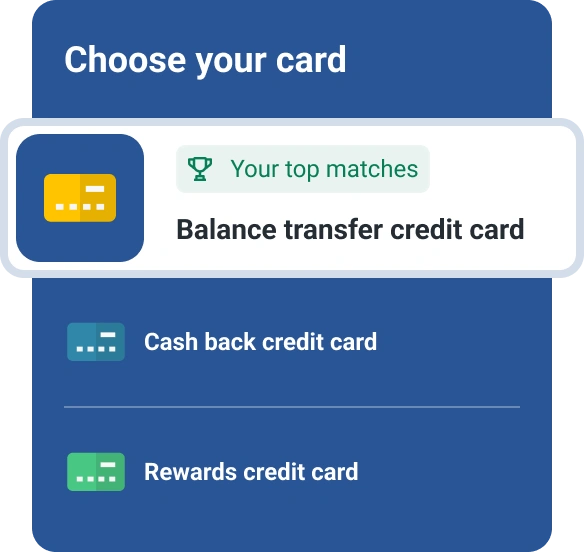Pros and Cons of Balance Transfer Cards
Quick Answer
Before you apply for a balance transfer card, weigh the costs against the benefits. Pros of balance transfer credit cards include the potential to save on interest and pay off debt more quickly. But there are cons, which include fees and limited time to repay at low APR.

Balance transfer credit cards can potentially save you money and make it easier to pay off debt, but—as with any tool—they must be deployed skillfully for maximum benefit. Used clumsily, it's possible to make things worse. Here are some pros and cons of balance transfer cards.
Pros of a Balance Transfer
Save Money on Interest
The biggest benefit of a balance transfer credit card is the potential to save money on interest. Balance transfer cards typically come with a no- or low-interest promotional period during which you can transfer balances from other cards and pay off the balance on the new card at a much lower rate.
Your balance transfer credit card issuer may send you checks to pay off your other card balances or pay them off directly. Ideally, you'll pay off the new balance before the card's standard annual percentage rate (APR) kicks in—saving you the most in interest.
Pay Off Debt More Quickly
A balance transfer credit card can be part of a smart, disciplined strategy for paying off debt. It's important to keep track of exactly what the terms are and when the rate ends. Paying less interest on credit card debt can allow you to pay down the principal more quickly so you can get out of debt sooner. You may want to consider automating payments to be certain you are never late and that your last planned payment on your transferred debt arrives before the rate expires.
Consolidate Your Debt
A balance transfer credit card can also be useful as a debt consolidation tool. You can move from multiple accounts and multiple due dates to a single payment, often with a lower interest rate. Streamlining your financial life can make it easier to ensure payments are made on time, every time.
Cons of a Balance Transfer
The lure of a low or 0% interest rate can make it harder to see the drawbacks, but here are some to consider:
Balance Transfer Fee
You will typically pay a fee of 3% to 5% of the amount transferred. In most cases, there is a minimum amount for the balance transfer fee, and the lower percentage usually applies only to balance transfers made shortly after you open the credit card.
Low Interest Rate Is Temporary
The length of the promotional interest rate period can make a big difference in whether it's worth it to pay the fees to initiate a balance transfer. If you do not pay off the balance transfer by the end of the promotional period, your APR will shift to a higher rate. The promotional period on balance transfer cards typically ranges from 12 to 21 months.
Potential for More Debt
If a balance transfer card tempts you to resume using the card or cards that were paid off in the transfer, you could end up with more debt than before, and at higher rates. It pays to know yourself and to have a plan—and be disciplined enough to follow it.
You May Need a High Credit Score
Qualifying for a balance transfer card typically requires a credit score in the good to excellent range. If you don't yet have that, a debt consolidation loan might be a better option, especially if you can qualify for a rate lower than what you are paying now on your other debt.
How to Choose a Balance Transfer Credit Card
It would be easier if you could look only at the length of the low or 0% intro APR and the balance transfer fees to choose a balance transfer card, but there's more to it than that. You also want to consider:
Find the Right Credit Card Issuer
Generally, you can't transfer a balance from one account to a balance transfer card from the same card issuer. Instead, seek out a balance transfer card with a different issuer that offers the terms and benefits you're seeking.
Check the Introductory Period Length
Calculate how long it's going to take you to repay the debt you are transferring. If the rate doesn't last long enough for you to repay the debt, it might not be your best choice. If your balance is large, consider looking for the longest introductory period you can find.
Consider Fees
In many cases, you can get a lower balance transfer fee—perhaps 3%—if you initiate a balance transfer right away, but pay more—typically 5%—if you wait.
Cards may also come with annual fees, late fees or foreign transaction fees. Those might be worth it to you, but if a balance transfer offer is your main motivation for applying, be sure you are aware of fees.
How to Do a Balance Transfer
Some card issuers allow you to include balance transfer details on your application. Initiating a balance transfer after your card arrives can be done online or by phone.
Here's how:
- Log in to your credit card account or call your card issuer.
- Share the other accounts' information and the amount you want to transfer. If your new card's credit limit won't accommodate all the debt you hoped to transfer, prioritize cards with the highest APRs.
- Continue to pay your credit card bills for existing cards until you receive confirmation that the transfer is complete. This typically takes a few days, though some issuers advise allowing several weeks.
The Bottom Line
A balance transfer card can help you save on interest while paying off debt, but it's important to understand the terms. It is worth considering if you have good credit—a FICO 8 score of 670 or higher—and a plan for paying off the debt before the promotional APR ends.
A balance transfer credit card is not the right debt repayment strategy for everyone, though, and not everyone qualifies. Experian offers a feature that can help match consumers with balance transfer cards or debt consolidation loans that align with their financial priorities and credit profiles.
Best balance transfer cards
Need to consolidate debt and save on interest? See if you qualify for intro offers like 0% intro APR up to 21 months based on your FICO® Score.
See your offersAbout the author
Bev O'Shea is a Georgia-based freelance journalist specializing in personal finance and consumer credit. Most recently, she was a staff writer at personal finance website NerdWallet, where she was an authority on credit reports, credit scores and identity theft.
Read more from Bev

